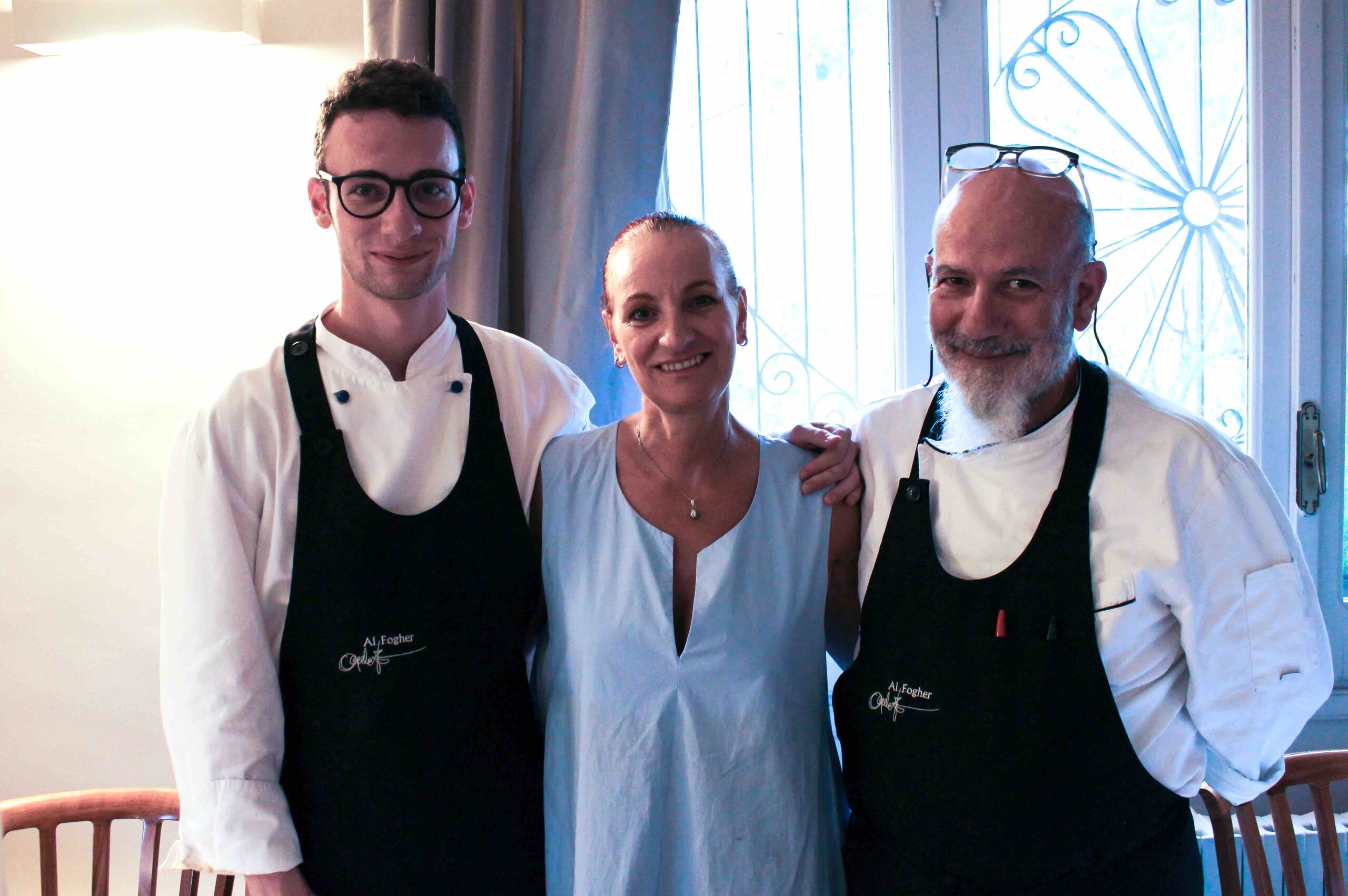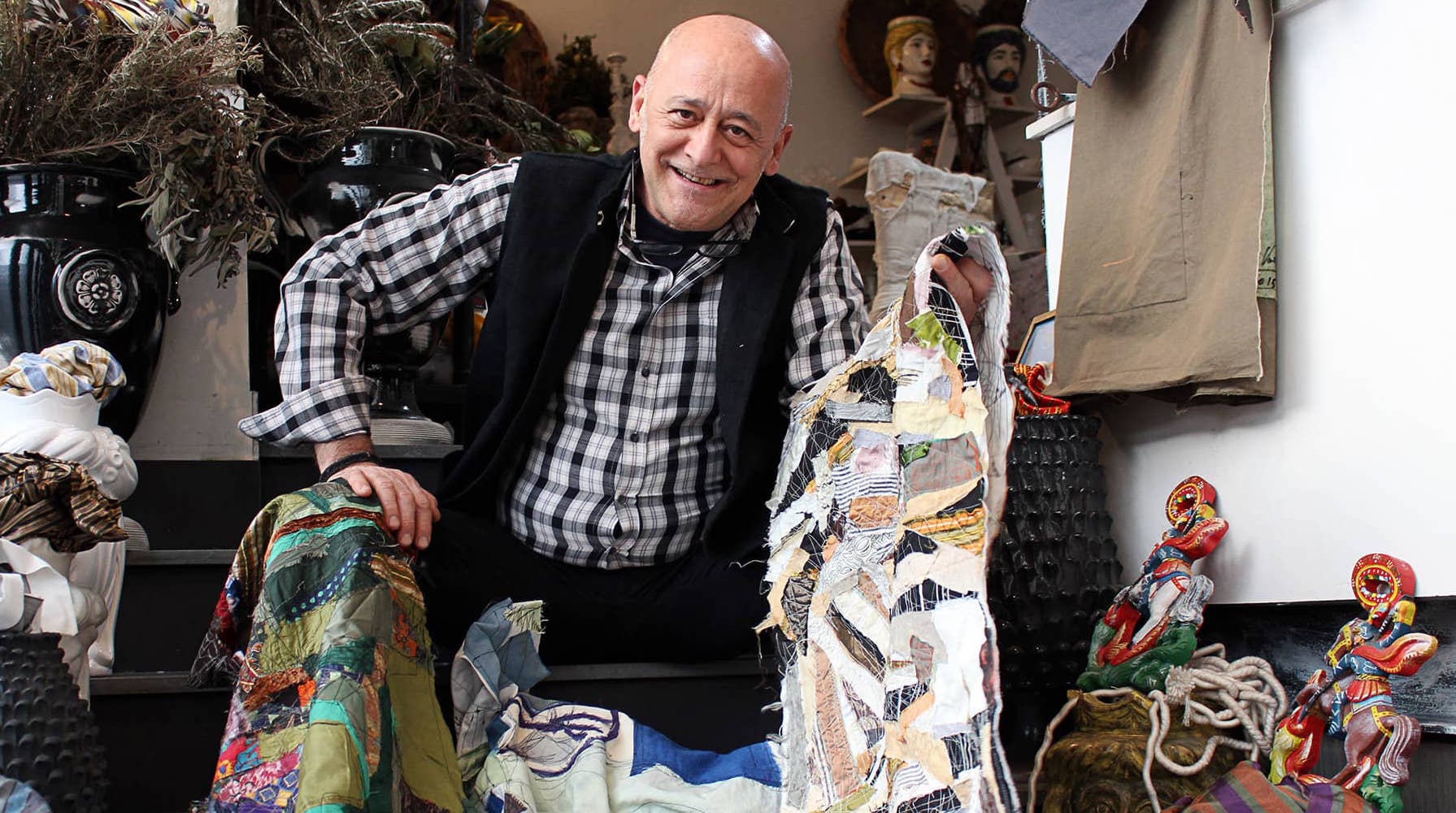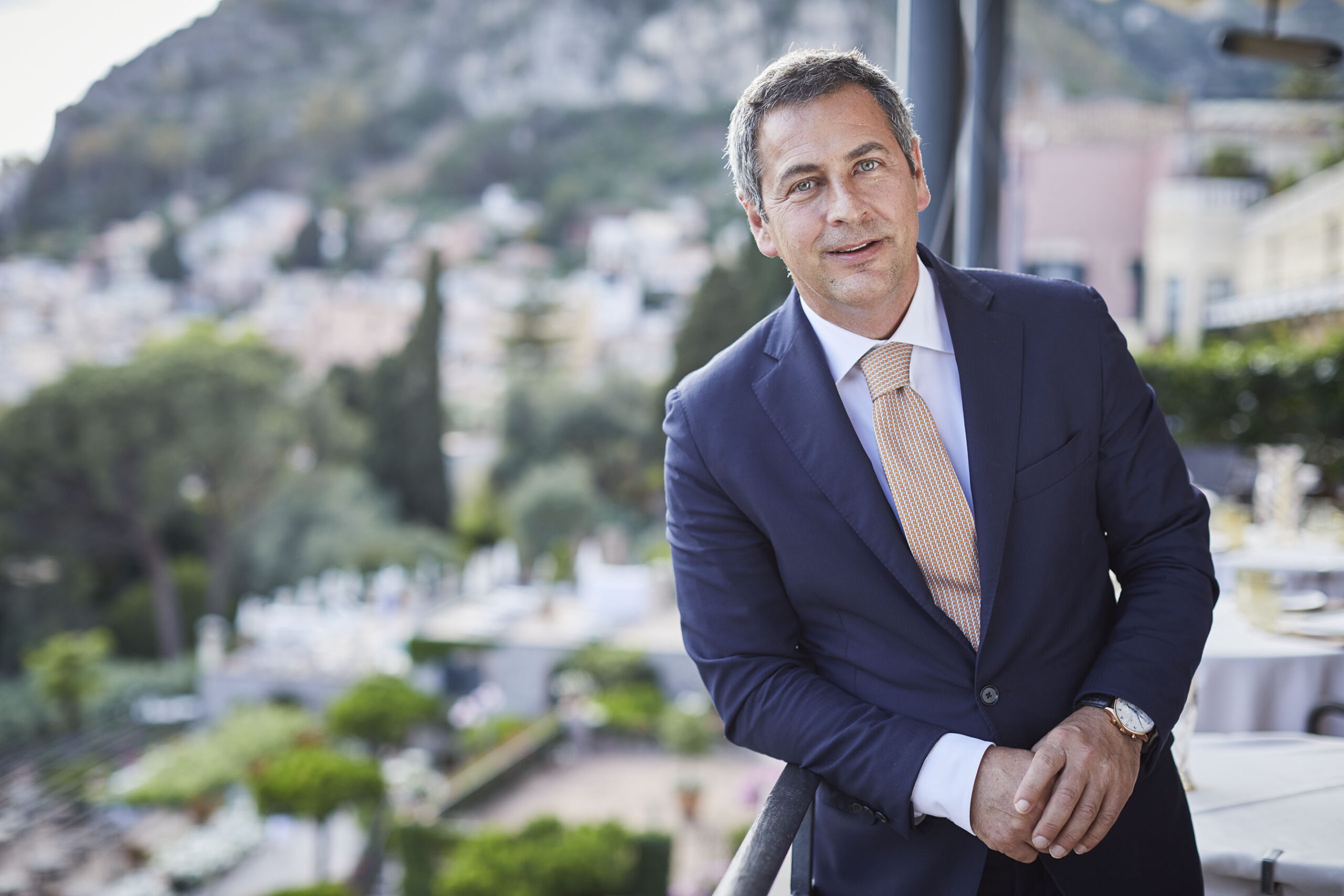Angelo Treno’s cooking is created around the hearth of conviviality.
His love for Sicily, his rediscovery of the origins and the Mediterranean.
A gentle breeze. Autumnal atmosphere. A child’s curious eyes follow a man who is carrying some frogs. They then turn towards a group of young people gathered around the drinking trough.
Along the road the scent of soup is spreading all around, it smells like sharing. Genuine flavours, the gifts of nature, the most authentic expression of rural life. Angelo is a little kid, who never stops looking around, his gaze far and wide. But he never loses sight of his father, Giuseppe, a man with big strong hands, a well-built farmer known in Piazza Armerina and surroundings as Peppino. Guided by his quick pace, the child looks up to his father – who wears corduroys and plaid shirt – as though he were an inexpugnable tower, so magnificent and strong, both his figure and his soul.
The idea of addressing him without the respectful “voscenza” (Sir) never once crossed Angelo’s mind.
In the meantime they reach their destination: an old shop, where local produce is sold. Mustard, nuts and everything else that a man of another time would cherish.
Here, for the first time, the innocent child gets to know what a herring is.
After having bought it, his father wraps it in straw paper and places it on a huge brazier, underneath the ash. He then crumbles its skin away with his hands.
The house is warm and cosy, anticipating the everyday familiar flavours.
Mother is busy with the potatoes, which can never be left out, as they satiate the appetite. There are also spring onions, oranges and fennel. The herring is on the table. The child quickly runs to the barn to fetch the wine with a terracotta jug.
This is a cherished memory, a tale captured in time, as in a sequence of painted scenes.
Other memories surface. Men with their foreheads beaded with sweat. Men who, after the harvest and before receiving their compensation for their work, meet at Peppino’s house to share the meal. Happy faces, lighthearted words, toasts, while the scent of fried mullets spreads all around. All preceded by prayers of thanks for a sacred conviviality, the fruit of sacrifices.
South of Piazza Armerina, we can glimpse little streams with their pebbles and sand. Crabs and crayfish can be found here. They are roasted on an open fire. Sometimes, one can even catch eels.
Suddenly the air becomes thick with smoke.
At Catania’s train station a sixteen-year old boy is going to leave for Turin. This time, it is Peppino’s eyes that draw in the details of a scene dominated by deep feelings, secured in one’s heart. A father’s choice to look into a son’s future, with courage and vision. To Angelo, his father’s countenance is a symbol of strength and goodwill, an exhortation to be respectful to his aunt who is going to host him.
The teenager gets on the carriage and takes a seat. His journey begins.
He puts his hand in his pocket and finds ten thousand lire. He doesn’t know it yet, but he is going to spend it all as soon as he gets to Turin, on a taxi ride.
Alpine horizon, welcome to Turin.
In this city Angelo Treno, just sixteen, has his first work experience at the renowned bar, San Carlo.
From then on he leads a life of hard work and sacrifices. His everyday life is marked not only by the scent of chocolate – at that time made with cocoa powder mixed with sugar – but also by the colours of the labels of the bottles on display behind the counter. It is mandatory to learn the inscriptions and ingredients by heart: this would give him the chance to gain better work opportunities.
While working, Angelo also takes care of his education, in order to improve himself, his profession and to strengthen his experience. He also develops an interest in philosophy. After having worked as a barman and a maître d’, in the ’70s he starts working in the kitchen, where he discovers his passion for cooking. A passion rekindled by the joy one feels when preparing food for people and thereby creating a convivial atmosphere.
The years go by. Angelo travels around Europe. His cooking is enriched with new flavours, ingredients, and techniques. From one place to the next, it is a journey of discovery.
He ends up in Milan.
He never forgets his origins though, which to him feel close and timeless.
Sometimes, an inexplicable force compels some Sicilians to interpret – thanks to skilled acquired – the transversal and multiform nature of their island.
The Mediterranean on a plate
A hidden power, almost ancestral. You can call it identities (yes, plural). An evident expression of this being the Mediterranean on a plate (cover photo). It is a herring salad with a side dish of boiled potatoes, oranges, spring onions, oil and a hint of lemon juice.
Simple produces, typical of the Sicilian hinterland, reinvented in a recipe that evokes scents and memories.
This dish, today enriched with other ingredients such as natural Greek yoghurt, lemon zest and pomegranate pearls, can be enjoyed at the Al Fogher. This is the restaurant which Angelo Treno, together with his wife, pastry chef Ernesta Tudisco, opened in Piazza Armerina in 1992.
Cooking which tells about places, men, women, but also tells tales about this island and its treasures.
Al Fogher, the Venetian word for flame, is a tribute to conviviality, the hearth around which we gather to rediscover the alchemy of genuine flavours. The building where the restaurant is located was once a rail tollbooth. And the fact that Angelo’s last name is Treno – ‘train’ in English – is a coincidence that brings a smile to our lips.
The alchemy of genuine flavours
«Here – Angelo Treno says- I celebrate the meeting of different cultures: the magic of Sicily. To respect the territory means to cherish every single details, not only of the places, but also of people. When I cook – he adds – my thoughts turn to children. I believe that if a cook can satisfy children’s palate, he can conquer the adults’ as well».
Here I celebrate the meeting of different cultures. This is the magic of Sicily.
Angelo cooks with his heart and his emotions. At his side there is always his wife Ernesta, a very sensitive woman whose elegance is reflected in the restaurant style. Family and sharing.
Here the fire is light and warmth. We go back to the origins.

© ALL RIGHTS RESERVED




